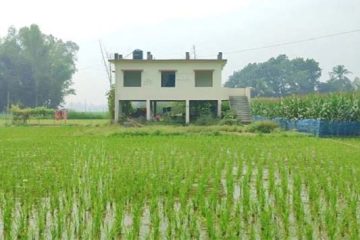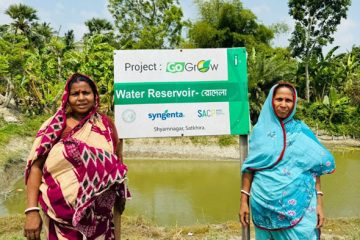 A global information and communication technology (ICT) report has lauded Bangladesh’s two initiatives — one by Banglalink and the other by Grameenphone that cater to the market information needs of rural farmers.
A global information and communication technology (ICT) report has lauded Bangladesh’s two initiatives — one by Banglalink and the other by Grameenphone that cater to the market information needs of rural farmers.
Banglalink’s helpline Jigyasha and Grameenphone’s telecentre-based market solutions have been helping address the farmers’ needs across the country, said a report of the United Nations Conference on Trade and Development (Unctad).
The report titled “Information Economy Report 2010: ICTs, Enterprises and Poverty Alleviation” was released in October.
Over 100,000 people, mainly farmers call Banglalink’s Jigyasha to know about farming related issues, according to the report.
It said poor people often lack access to vital information such as market price information, income-earning opportunities, weather forecasts, use of pesticides and fertilisers and health and disaster risk reduction.
“This is where ICTs come in. By providing the means for poor men and women to access useful information and to communicate, they potentially help them build and improve their livelihoods,” said the Unctad report recognising Banglalink’s efforts to address those issues.
The report also said Grameenphone’s 500 community information centres across the country are helping each rural small investor earn $3-4 a day, much better than almost half the population who earn less than $1 a day.
Grameenphone has also created 350,000 ‘village phone ladies’ who are earning a decent income.
The report also hailed Bangladesh for its success in the mobile phone coverage in terms of population and territory and a relatively faster penetration and lower call-charges than many countries.
ICT and mobile phones particularly are helping nations develop in many ways, for example, the case of Bangladesh combating poverty, it said. Mobile phones are helping create thousands of new micro enterprises mushroom in many countries, augmenting livelihoods for the poor.
The report examines two ways in which ICTs in enterprises can benefit the poor: first by use of ICTs in enterprises of direct relevance to the poor. For example farmers, fishermen and other micro enterprises in low-income countries are rapidly adopting mobile phones as a key tool to advance commercial activities; secondly by being involved in the ICT producing sector. The report finds that the potential is far from fully exploited.
ICT-related micro enterprises are spreading rapidly in many low-income countries, offering work of real value to populations with little education and scant resources. Such activities include selling airtime on the streets, refurbishing mobile phones, repairing personal computers and running cyber cafés.
Such commercial undertakings have relatively low entry barriers. The costs and skills required are often modest and the poor are making good use of this accessibility.
Mobile phones have also impacted the lives of millions of people in African countries like Kenya, Gambia, Ghana, Uganda and Nigeria.
However, Unctad stresses that ICT micro enterprises typically operate in a volatile and risky sector and the returns on investment are often low. Micro entrepreneurs must have the capacity to adapt and respond to changes.
The report notes that the opportunities for ICT micro enterprises to survive and grow are greater in urban settings, where it is easier to establish essential relationships with other enterprises, both formal and informal. The scope for creating long-term jobs around such activities in rural areas appears to be more limited.
The Unctad has been publishing such reports since 2005, but Bangladesh was included for the first time this year.






